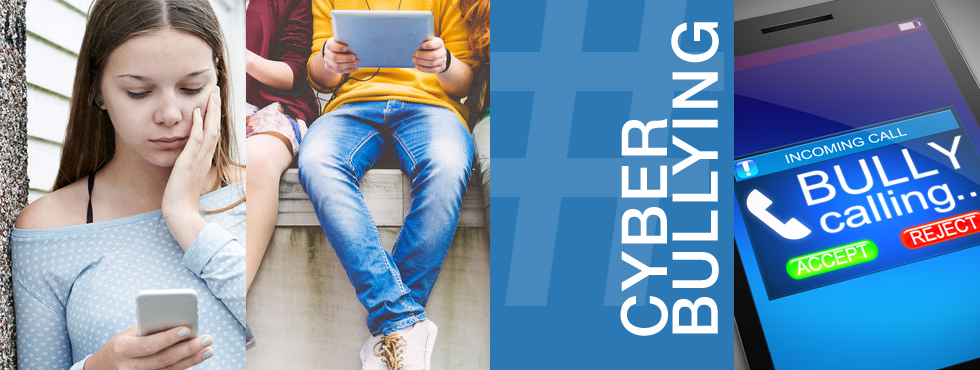Lisa-Michelle Kucharz is a former victim of cyber-harassment who has dedicated herself to prevention advocacy and support.
Dedicated to fostering a safer and kinder world for children — online and off — Lisa-Michelle supports the American Society for the Positive Care of Children’s mission and is honored to add her voice to advocating for the safety and wellbeing of every child.
The Most Important Thing Parents Need To Know If Their Child Experiences Cyberbullying
By Lisa-Michelle Kucharz
By the time I was impersonated online, I already feared for my life and knew I was being harassed by what appeared to be a young woman interested in dating a man who was my friend and trainer at the time, and someone with whom I previously had a brief intimate relationship. What I didn’t know was how much worse the situation would get before I began to believe it could ever be resolved.
It was at that moment when I realized how deep the devastating effects of youth cyberbullying could be. I was 44 when my ordeal began and, if you asked me beforehand what was my perception of my strength and resiliency, I would have told you they were both quite strong. My friends, colleagues, and family would have agreed. But, the round-the-clock barrage of attacks — direct messages, public humiliation, defamation of character, intimidation, threats, contact with my employer, and hate speech — terrorized and broke me.
During this traumatic time, I decided I would become an advocate to help prevent youth cyberbullying and adult cyber-harassment. I planned to share my story and speak out for educational resources, legislation reform, resources for law enforcement, awareness campaigns, and assistance for youth carrying out cyberbullying, once my case would be resolved. It took more than three years from when the harassment began till the offender’s sentencing. After she pleaded guilty to criminal harassment, I reached out to elected officials and advocates.
As a former victim of cruel and continuous cyber-harassment, I’m in somewhat of a unique position of having faced the same, or similar, experience as today’s victims of youth cyberbullying. At the sentencing, Judge J. Gage shared that it was “a perplexing and troublesome case. The messaging and posting on the internet that constitutes the harassment is virulently and aggressively demeaning toward the victim. It represents without question the epitome of cyberbullying and the most egregious form of posting that I have had the misfortune to review . . .”
While the offender was not as young as she claimed, but rather a woman in her 30s, it could be said that her online behavior was similar to that of those engaging in youth cyberbullying today.
My experience taught me a lot about the nature of those carrying out cyberbullying and harassment. It taught me how to document evidence, engage investigators and law enforcement, recognize offline and online red flags, keep private information private, the importance of upstanders, how you can be a victim without your own online presence, and how much work needs to be done to diminish cyberbullying and cyber-harassment. It taught me about the negative effects of not having a federally recognized definition and consistent state legislation for this harmful behavior that is greatly impacting youth throughout the U.S. and around the world. It also taught me I could survive a very dark and difficult time.
Make no mistake about it, today’s youth are regularly witnessing online harassment and too often becoming victims of it. “One in three online teens have experienced online harassment . . . such as receiving threatening messages; having their private emails or text messages forwarded without consent; having an embarrassing picture posted without permission; or having rumors about them spread online,” according to the 2017 Pew Internet & American Life Project.
The most important thing parents in the U.S. need to know if their child experiences cyberbullying is laws vary from state to state and policies can vary from school to school. Before taking any action, parents should find out their state laws and school policy regarding cyberbullying. If the content includes threats of violence, they should immediately contact their local police. If their state has legislation pertaining to cyberbullying, or the student carrying it out does not attend a school in the same district, parents should contact law enforcement who will either look into the matter further, or inform them of possible next steps or who to contact. Depending on the nature of the messages or posts, parents may want to contact an attorney before taking any action.
Research shows victims, witnesses, and those carrying out bullying and cyberbullying are all impacted by it immediately and in the future. According to StopBullying.gov, “Bullying can affect everyone — those who are bullied, those who bully, and those who witness bullying. Bullying is linked to many negative outcomes including impacts on mental health, substance use, and suicide.”
For today’s youth, all of us must cultivate a safer cyber-world and, at the same time, foster empathy, kindness, and respect online and off. Parents and educators can start by leading by example, sharing safe practices, and opening lines of communication. With so much of our lives taking place online today, we owe it to ourselves and future generations to make the digital world safe.

Lisa-Michelle is a recognized expert in traditional and digital marketing, communications, and social media. She is an effectiveness, career, lifestyle balance, and positive psychology coach. She is an adjunct professor and inspirational speaker.
She is teaming up with legislators and advocacy groups to help diminish cyberbullying and cyber-harassment. She shared her story and how it impacted her with elected officials to demonstrate the devastating effects cyberbullying can have on youth and adults. After informal research, she proposed cyberbullying legislation, including a comprehensive definition. In addition, she proposed several initiatives, such as launching a New York State youth cyberbullying task force, sharing information with parents of school-age children, awareness campaigns, and resources for law enforcement.
On February 6, 2018, New York State Senator Todd Kaminsky introduced a bill in the New York State Senate (S7678) to create a task force to explore and address the impact of cyberbullying. The task force would review best practices and share suggestions for school policies and procedures, cyberbullying prevention programming, and state regulations. The bill also was sponsored in the New York State Assembly (A9846) by Assemblymember Didi Barrett and co-sponsored by Assemblyman David Buchwald. American SPCC encourages you to join us as we help create a brighter future for kids. Through advocacy and help resources we create real impact in families and communities.
Kid’s need our voice like never before! TAKE ACTION and start making a positive difference in the life of a child.
There are so many ways that you can be a hero!

